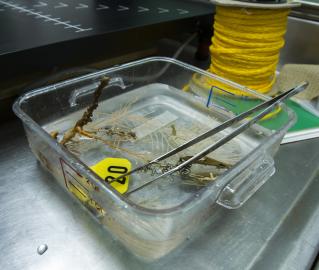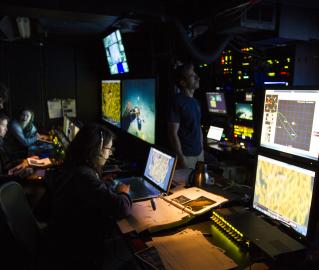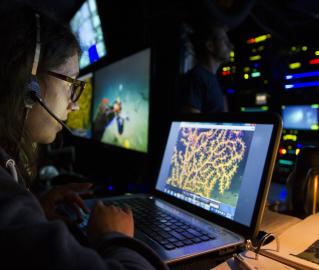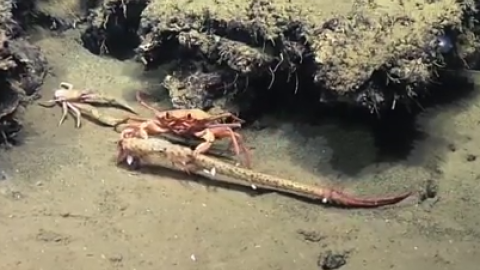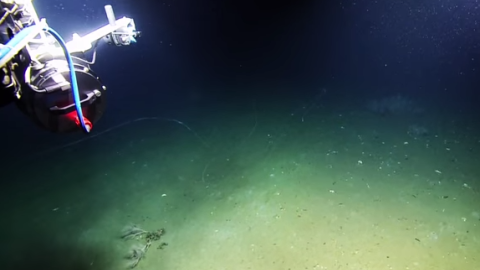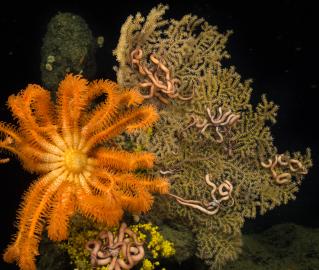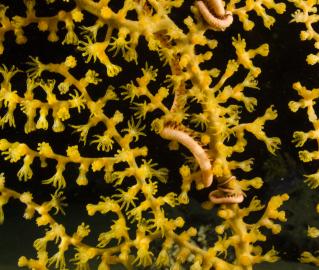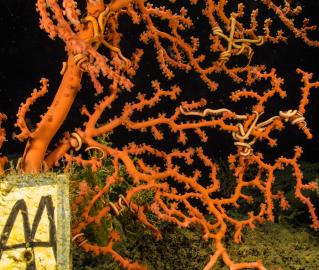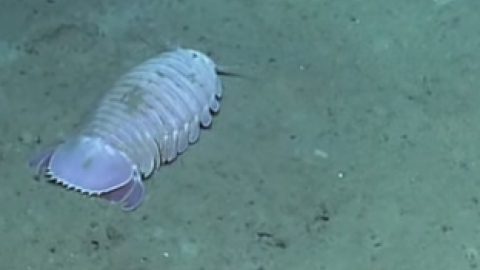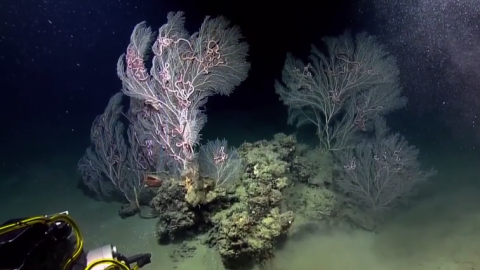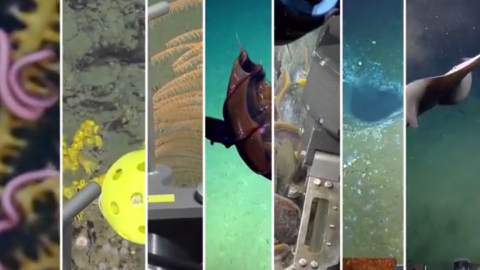The ECOGIG group, funded as a part of the Gulf of Mexico Research Initiative (GoMRI), is looking at both natural oil and gas seepage into the Gulf of Mexico and ecosystem responses and effects directly attributable to the Deepwater Horizon oil spill of 2010. On this cruise, we will focus on deep-sea corals, their associated communities, and their response to the oil spill. We will also be collecting corals for laboratory experiments and for analyses of coral and microbe response to natural oil seepage. To do so, we will re-image as many as possible of the same corals that we have been following over the last 4 years and collect corals for laboratory experiments and for analyses of coral and microbe response to natural seepage. Our plan is to return to a number of sites where we have documented impacts of the oil spill to deep-sea corals and continue our monitoring of these sites. The 2015 ECOGIG cruise is a continuation of a 3-year partnership with OET to study the ecosystem-level response to oil and gas in the Gulf of Mexico. This is part of a larger research program by a group called the Ecosystem Impacts of Oil and Gas Inputs into the Gulf of Mexico (ECOGIG) Consortium, which is made up of scientists from a wide variety of disciplines studying current flow, ocean chemistry, microbial activity, deep-sea coral communities, and everything in between.
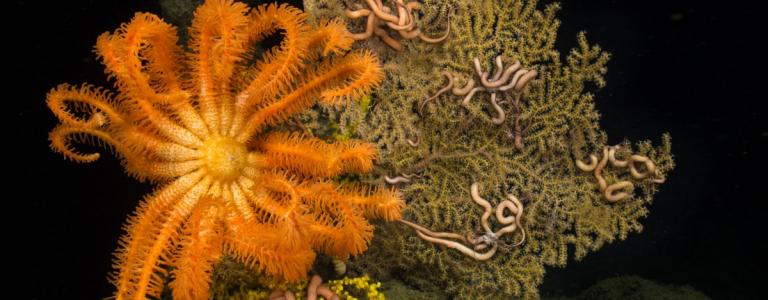
Lead Scientist
Expedition Leader
Meet the Team
Gallery Highlights
Photo album:
Collecting and Processing: Where Do the Samples Go?
Photo album:
Beautiful Corals in Gulf of Mexico
Video:






























